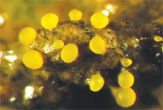
Get the world’s most fascinating discoveries delivered straight to your inbox.
You are now subscribed
Your newsletter sign-up was successful
Want to add more newsletters?

Delivered Daily
Daily Newsletter
Sign up for the latest discoveries, groundbreaking research and fascinating breakthroughs that impact you and the wider world direct to your inbox.

Once a week
Life's Little Mysteries
Feed your curiosity with an exclusive mystery every week, solved with science and delivered direct to your inbox before it's seen anywhere else.

Once a week
How It Works
Sign up to our free science & technology newsletter for your weekly fix of fascinating articles, quick quizzes, amazing images, and more

Delivered daily
Space.com Newsletter
Breaking space news, the latest updates on rocket launches, skywatching events and more!

Once a month
Watch This Space
Sign up to our monthly entertainment newsletter to keep up with all our coverage of the latest sci-fi and space movies, tv shows, games and books.

Once a week
Night Sky This Week
Discover this week's must-see night sky events, moon phases, and stunning astrophotos. Sign up for our skywatching newsletter and explore the universe with us!
Join the club
Get full access to premium articles, exclusive features and a growing list of member rewards.
A single genetic mutation is all it takes to transform selfish bacteria into altruistic team players that contribute resources to the entire group, even when they themselves might not survive to benefit, a new study shows.
One result can be a "superstrain" of survivors.
The finding, detailed in the May 18 issue of the journal Nature, demonstrates how simple genetic changes can lead to relatively complex forms of cooperation, said study leader Gregory Velicer from the Max-Planck Institute for Developmental Biology in Germany.
When food becomes scarce, social bacteria Myxococcus xanthus clump together into hardy spores that can withstand environmental stresses for long periods of time. A spore is a cocoon of sorts that serves as a seed for future generations.
Each spore of M. xanthus contains about 100,000 starving cells that pool their meager resources. Many cells die during the process and never become part of the spore.
"It's possible that the carcasses of the dead cells are providing nutrients to the cells that will become spores," Velicer told LiveScience.
Some mutated strains of M. xanthus can't form spores on their own but are more efficient than their non-mutated peers at doing so when the two strains are mixed. These so-called cheater strains take over an entire population by out-competing normal strains for the limited spots in the spores.
Get the world’s most fascinating discoveries delivered straight to your inbox.
However, by doing so, the mutant bacteria ensure their own destruction because they require normal cooperative strains to kick start the process of making a spore.
Indeed, in most of the experiments in which cheating and social bacteria were mixed, the entire population died out. But in one special case, the merged population led to the creation of a new superstrain of cooperative bacteria that produced more surviving cells than either of the two original strains.
When the researchers sequenced the superstrain's genome, they discovered that its newfound success was due to a single mutation in the DNA of the cheater bacteria.
The researchers dubbed the new strain "Phoenix" because of its ability to recover from the brink of social collapse.
"A defective social strategy need not be an evolutionary dead end," Velicer said.
 Live Science Plus
Live Science Plus










